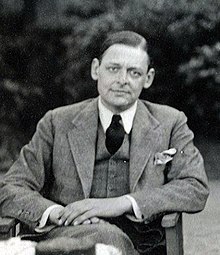I was not sorrowful, I could not weep,
And all my memories were put to sleep.
I watched the river grow more white and strange,
All day till evening I watched it change.
All day till evening I watched the rain
Beat wearily upon the window pane.
I was not sorrowful, but only tired
Of everything that ever I desired.
Her lips, her eyes, all day became to me
The shadow of a shadow utterly.
All day mine hunger for her heart became
Oblivion, until the evening came,
And left me sorrowful, inclined to weep,
With all my memories that could not sleep.
Born into an eminent family at Belmont Hill in Kent, Dowson left Queen's College, Oxford, without finishing his studies, and became part of Wilde's and Beardsley's set in London. He inherited a dry dock from his father, but, having become a heavy drinker, he lived there in squalor, later moving to France and converting to Roman Catholicism. He died at the age of 32.














